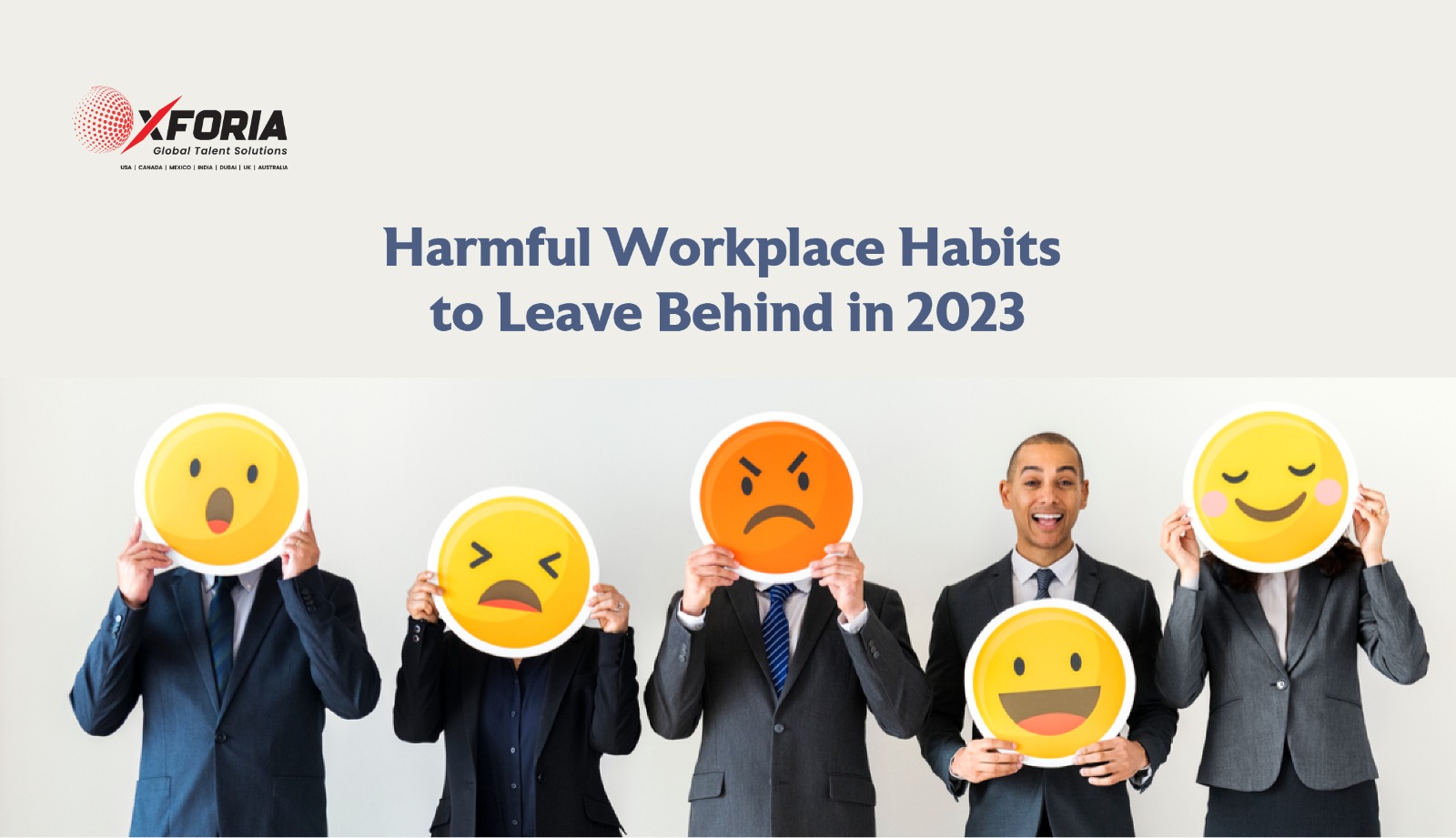
22 Dec Harmful Workplace Habits to Leave Behind in 2023
As the professional landscape continues to evolve, so should our approach to work and the behaviors we exhibit within the workplace. The past year has taught us invaluable lessons about adaptability, flexibility, and the importance of well-being in our professional lives. However, certain detrimental workplace habits persist, hindering productivity, fostering unhealthy environments, and impacting overall satisfaction. As we step into a new year, it’s imperative to identify and bid farewell to these harmful workplace habits to foster healthier, more conducive work environments.
Overworking and Ignoring Boundaries: In an era where remote work has become more prevalent, the lines between work and personal life have blurred for many. The tendency to overwork, check emails incessantly, and work outside of designated hours can lead to burnout and decreased productivity. Setting clear boundaries between work and personal life is crucial for maintaining well-being and ensuring sustainable productivity.
Lack of Communication and Collaboration: Ineffective communication and a lack of collaboration can severely impact team dynamics and project outcomes. Embracing open communication channels, actively listening to colleagues, and fostering a culture where diverse perspectives are valued can lead to more innovative solutions and a stronger sense of camaraderie among team members.
Micromanagement and Lack of Trust: Micromanaging employees not only stifles creativity and initiative but also erodes trust within the team. Trusting employees to do their work autonomously while providing guidance and support when needed encourages a more positive work environment and empowers individuals to take ownership of their tasks.
Resistance to Change and Innovation: In today’s rapidly evolving world, being resistant to change and innovation can stagnate progress. Embracing new ideas, technologies, and methodologies is essential for staying competitive and fostering a culture of continuous improvement.
Ignoring Mental Health and Well-being: Prioritizing mental health and well-being in the workplace is non-negotiable. Ignoring signs of burnout, stress, or mental health issues can lead to decreased productivity, absenteeism, and a negative impact on overall workplace morale. Encouraging open discussions about mental health, providing resources, and implementing policies that support employee well-being are crucial steps toward a healthier work environment.
Lack of Diversity, Equity, and Inclusion (DEI): Building a diverse and inclusive workplace isn’t just a trend; it’s a necessity. Failing to prioritize DEI initiatives can lead to a lack of diverse perspectives, hinder innovation, and create an environment where certain groups feel marginalized. Embracing diversity and fostering an inclusive culture leads to a more engaged and creative workforce.
Procrastination and Poor Time Management: Procrastination and poor time management can impede productivity and lead to missed deadlines. Encouraging effective time management strategies, setting realistic goals, and providing support for prioritization can significantly enhance productivity levels.
Leaving behind these harmful workplace habits is essential for creating environments that foster productivity, innovation, and employee well-being. Embracing change, prioritizing communication, nurturing a culture of trust and inclusivity, and valuing mental health are paramount for success in the modern workplace. As we stride into the new year, let us collectively commit to shedding these detrimental habits and nurturing environments that empower individuals and teams to thrive.
